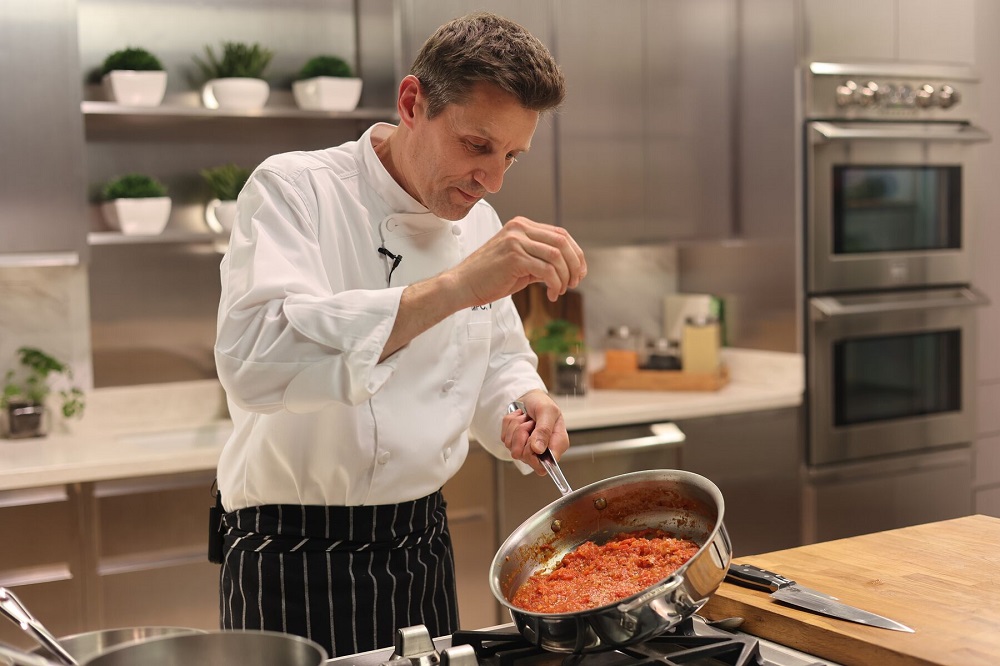Do you have a zeal for entrepreneurship and a love for food? Then why not combine the two into a single line of work? These culinary careers have an entrepreneurial flavor that will allow you to fulfill your craving for both food and business.
1. Restaurant Manager
When people think of culinary careers, restaurants and chefs are at the top of many individuals’ minds. And with over 660,000 restaurants in the United States in 2021, this isn’t a big surprise.
While every restaurant requires cooks, dishwashers, and service staff, they also need someone to manage the operation! This jack-of-all-trades position works to keep the overall operation running smoothly, which means two days are rarely the same. Managers may hire and train staff one day and then order supplies or follow up with marketing efforts the next.
Since restaurant managers have their hands in so many different aspects of the business, individuals who can remain calm and focused during ever-changing tasks and even a bit of chaos are often more likely to thrive in this position.
2. Food Truck Owner
If you’re not entirely sure about a food concept and want to test it out before opening a restaurant, becoming a food truck owner may be a good idea. Opening a food truck can provide you with the opportunity to test out recipes, get a feel for ordering and inventorying products, and establish a market.
Starting a food truck typically involves lower startup costs than those involved with opening a restaurant. However, this route also offers unique challenges, such as operating in a small space and navigating how you’ll market to customers if your location changes.
3. Catering Company Owner
Some people want to do it all—cook food, serve at events, and manage a business. One culinary career that can fit this desire is a catering company owner.
These individuals design recipes, menus, and catering packages then get to work cooking the food (or leading others to do so). Since they’re typically cooking for one-off events like weddings and parties, these professionals need to have a knack for marketing and the ability to connect with their customers.
Work hours, schedules, and tasks can also ebb and flow with the seasons—lots of hors d’oeuvres for summer weddings and cookie platters for winter parties, for instance—so flexibility is key.

4. Personal Chef
Another possible career for someone who wants to spend time cooking and managing a business is a personal chef. These chefs develop dishes and find clients much as a caterer would. However, they often cook in the private home they’ll be serving in. Personal chefs may prepare appetizers for one-off events like parties, or they may work with a single client to cook all of their meals.
Since this profession involves working closely with customers, it requires the ability to both connect and communicate with others. Not only do personal chefs need to network to find clients, but they also need to be able to learn about each individual’s dietary preferences and take feedback into account.
5. Food Stylist
If you have an eye for detail and design as well as an understanding of various cuisines, a food stylist may be a good career choice. These professionals work to present food so it looks aesthetically perfect for the camera. This not only involves arranging individual elements and choosing appropriate serving dishes and backgrounds, but it may also require altering recipes so that they photograph better.
While some food stylists work for single companies, many operate their own businesses. That means their day-to-day may involve reaching out to potential clients, booking appointments, and working with other culinary professionals like chefs, food writers, and food photographers.
6. Recipe Developer
You guessed it, recipe developers work to design and write recipes. These recipes may end up on restaurant menus, food blogs, or food product labels.
Entrepreneurial-inclined individuals can set out on their own to create a personal recipe development company. After gaining an understanding of how ingredients interact and the best way to convey information to consumers, recipe developers can then pitch their services to companies, publications, and more.
7. Chef Consultant
For people who want to work with food but not in a food service establishment, becoming a chef consultant could be a great fit. Depending on their skills, experience, and expertise, these individuals can consult on everything from starting a restaurant to managing kitchen staff to increasing the sustainability of a food service operation.
By narrowing down specific areas of expertise, chef consultants can pitch their services to businesses locally and beyond. As such, communication skills, marketing, and business development skills are necessities.
8. Food Photographer
Some folks know how to capture the joyous moment that occurs when fresh maple syrup hits hot off the griddle pancakes. They can also make delicate omelets, simple hot dogs, and juicy seared steaks jump off the page. These people have what it takes to become food photographers.
Many food photographers work with a range of clients to capture photos for both digital and print. This means connecting with potential clients, traveling for photoshoots, and building a strong portfolio to highlight their skills and services.
9. Bakery Owner
For people who are in love with baking rather than cooking, pursuing a career as a bakery owner could be a good option. Since bakeries can be tremendously different in size, daily roles and responsibilities may vary between specific owners. However, most bakery owners can expect to spend time completing quality control, establishing markets, handling orders, and maybe even whipping up a baked good or two.
Typically, the larger a bakery is, the less time the owner will likely spend with their hands on the literal dough. However, all owners must understand important business topics such as profitability, hiring, and customer retention rates.

10. Specialty Grocery Store Owner
Some people love providing people with good food but they don’t necessarily want to prepare it for others. These people may excel as specialty grocery store owners who are responsible for guiding the success of businesses including cheese shops, Italian foods markets, or chocolate stores.
Rather than spending time preparing food, these store owners work to source top products, establish sales margins, and take customer feedback into account. They’ll also need to be able to have a firm understanding of expiration, product rotation, and customer retention.
You Don’t Have to Decide Between Food and Entrepreneurship
It’s easy to think you need to push aside your interests in food in order to utilize your entrepreneurial skills or vice versa. However, this list of culinary careers proves this isn’t the case! Whether you’re looking to start your own catering company or create a business out of your photography skills, there’s a place for you in the world of food entrepreneurship.






